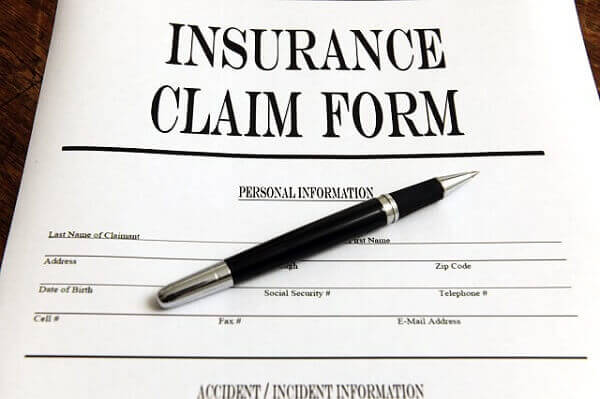
The following blog article was updated in January 2022.
After an accident, you might be contacted by the other party’s insurance. The claims adjuster assigned to your case could propose a settlement right then and there. You have medical costs, cannot work, and need money, but should you accept the first settlement offered to you?
Generally, it is not advisable to accept the first offer you get from the insurance company. Remember that the insurance claims adjuster does not work for you; they work for the insurance company. Therefore, their job is to settle the case quickly and for the least amount of money possible.
You should not accept the first settlement offer because it is typically a fraction of what you deserve. Insurers often start with a minimal amount to settle the case quickly.
First Offers Rarely Account for the Long-Term Care Everett Accident Victims Need
When you accept the first offer presented to you, that means you can quickly recover your lost funds. However, these first offers rarely account for future costs and damages – something you are unlikely to have calculated initially.
Injuries can be more complicated than originally thought. You may require follow-up surgeries and rehabilitation. And while you might assume that further treatment is unnecessary right now, it could be necessary for the future.
You need a doctor to weigh in on your status, but also an attorney to consider all potential costs in the future.
If you take that first offer, there is no chance to recover when more costs arise later.
That means you could find yourself paying for:
- Hospitalization
- Surgery
- Physical therapy
- Rehabilitative therapy
- Occupation therapy
- Psychology treatments
If you lose hours at work because of more medical costs, you will not have compensation for that either. It’s essential to consult with an experienced lawyer to ensure fair compensation.
It Is Best to Wait
It is in your best interest to wait until your treatments are complete or when your doctor has a good idea of the prognosis. Furthermore, you need an accurate accounting for other damages – not just medical costs. You want to know how much recovery time you will need, how many hours you will miss at work, and other issues that can force you to lose income. Also, you need to account for the chances that you could be partially or permanently disabled, which will affect your ability to make the same living.
First Insurance Offers Are Always Lower Than What You Deserve
As with any negotiation, one side will start on the lower end so that they provide themselves with a big enough cushion to move toward their maximum payout. It is important to note in an insurance case, you will receive a low settlement the first time around.
Not only do you have the costs that you need to consider, but the value of those costs. How much will it cost to repair your vehicle? What is the value of medical costs and how will they inflate in the future? Will your lost wages include bonuses or raises that you might have received?
Furthermore, that initial settlement will not account for pain and suffering. Rarely does the insurance company include pain and suffering in a person’s settlement offer initially. Pain and suffering are additional damages that help compensate for your physical, emotional, and mental anguish.
Putting a price on someone’s physical pain or mental anguish is complicated, but that is what an attorney can help you determine.
Realize the Insurance Claims’ Adjuster Has Authority to Go Higher
When you receive that initial offer from the insurance company, the adjuster will tell you that the amount you are being offered is what they think your claim is worth. During negotiations, you may also hear the insurance claims’ adjuster state that they do not have the authority to offer higher.
While they might not tell you how much they are authorized to give you in your case, and they will do their best to convince you that the amount they offered is the highest allowed, the reality is that an adjuster has much more authority. Your lawyer knows this tactic and can negotiate with the insurance company to move up their “bottom line” so that you get the compensation you deserve.
Properly Rejecting the Settlement Offer
When you receive the first offer, your attorney is likely to advise you to not take that offer. They will then reject the settlement offer from the insurance company by:
- stating that you do not find the offer amount acceptable;
- listing reasons why the amount is too low and why they feel you deserve more; and
- including a list of demands and costs justifying a higher settlement value and the amount they are willing to accept.
Once you reject the offer, the insurance company will consider the counteroffer and either agree or come back with their own counteroffer. This tells the insurance company you are willing to negotiate, but that you have demands that must be met as well.
Your lawyer will likely quote a higher number in his or her demand letter. But before any settlement counteroffer is made, your lawyer will discuss the lowest and highest settlement options they see happening with your case.
Fair Settlement Offers Come Later
Realize that negotiations are not a one-day process. Instead, it takes time to cultivate the negotiations far enough to where you get an offer that is fair. Rarely will the insurance company offer a fair settlement initially, and sometimes you will have multiple offers and rejections until someone comes up with a number that fits your needs.
Injured in an Accident? Speak with an Attorney Today
If you are injured in an auto vehicle accident or other incident caused by someone’s negligence, you can hold them accountable for their actions and seek damages from them.
Before you deal with the insurance company, contact the legal team from Brett McCandlis Brown & Conner PLLC. We offer free, no-risk consultations to our clients and would love to help you find a solution with the insurance company so that you have your costs covered.
Call us today at 206-488-1611 or contact us online to get started.


